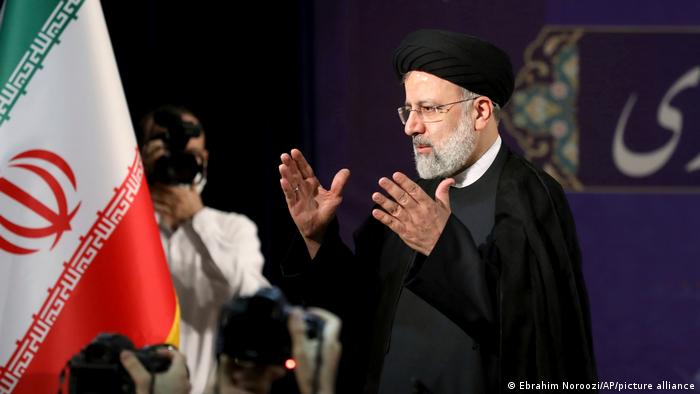
Tehran: The news of Ebrahim Raisi's election win in Iran on Saturday sparked mixed reactions from the international community.
The 60-year-old cleric will replace outgoing moderate President Hassan Rouhani, who could not run again after holding office for two terms.
Raisi is known as a fierce critic of the West. He will become the first serving Iranian president to already be under US sanctions before entering office, due to his involvement in mass executions in 1988.
Iran's regional allies were quick to congratulate Raisi, but analysts say his win could spell difficulties in improving ties with regional neighbors and the West.
Who welcomed his win?
Turkish President Recep Tayyip Erdogan echoed Putin's remarks — saying he was ready to work with Iran's newly-elected president. Erdogan said he believed "cooperation between our two countries would be strengthened further."
Congratulations also came in from the United Arab Emirates as well as Oman, which has served as a mediator between Tehran and the West.
How did others respond?
Israel voiced concern over Raisi's win, saying the international community should be alarmed over his commitment to a "rapidly advancing military nuclear program."
The United States said it regretted Iranians were not able to participate in a "free and fair electoral process."
A State Department spokesperson said, "Iranians were denied their right to choose their own leaders in a free and fair electoral process."
The European Union also did not react immediately. Brussels did, however, release a statement on Saturday evening saying negotiations on reviving the 2015 Iran nuclear deal will resume on Sunday.
The EU statement said representatives from Iran will be present at the talks in Vienna, along with the other signatories of the 2015 deal. The US also said it would participate in indirect negotiations on the Iranian nuclear program.
One of the strongest messages of support came from Russia, with President Vladimir Putin saying Raisi could help strengthen "bilateral cooperation."
"This responds entirely to the interests of the Russian and Iranian people and goes towards reinforcing regional stability and security," Putin said in a message.
Syrian President Bashar Assad was one of the first to welcome the win, sending his "warmest congratulations" in a statement. Iran has been a key player in helping Assad hold power in Syria's decade-long conflict.
What have analysts been saying?
Experts are divided on what Raisi's win could mean for the future of the nuclear deal talks.
Analysts with the Eurasia Group think tank said his win wouldn't likely uproot the negotiations in Vienna, but warned that his election could have a major impact on other areas of Tehran's foreign policy.
Raisi's "hardline, anti-Western views are a sharp break from the more moderate stances of Rouhani and will have a significant impact on Tehran's relationship with the outside world."
Other analysts said Raisi's election could make improving relations in the region more difficult.
"Iran has now sent a clear message that they are tilting to a more radical, more conservative position," said Abdulkhaleq Abdulla, a UAE political analyst, told the Reuters news agency.